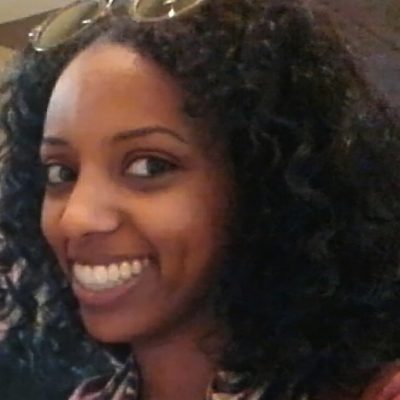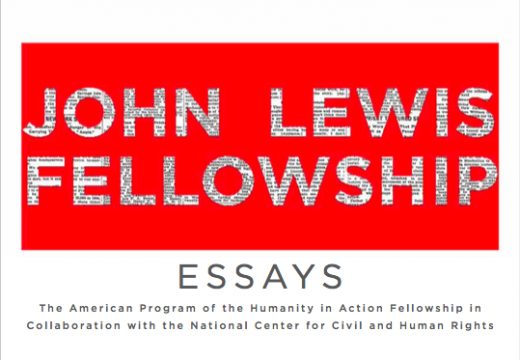Details
Article
I was excited when I found out I got selected for the John Lewis Fellowship in Atlanta, Georgia. Excited for the opportunity to learn from academics and professionals, but also a bit skeptical for the message they would deliver. Crafted as American speakers are, the message is often beautiful, but unrealistic or even untrue. I was worried to come into a space where the speakers were going to try to sell us rainbows and unicorns about human rights and activism. As I saw it, a few humans in action were not going to change the world. In my mind it was simply not possible, since the world is in the hands of a few unreachable, wealthy and power hunger straight white men. Those men created the corrupt system we live in today and are the ones keeping it in place. A system where colonization and slavery just taken on other forms like capitalism, War on Drugs, War on Terrorism, gentrification, and so on. However, under the notion of ‘’knowledge is power’’ I applied.
I was worried to come into a space where the speakers were going to try to sell us rainbows and unicorns about human rights and activism.
After I heard the first few speakers I was taken aback to say the least. Most speakers were closer to reality then I had expected and their stories and experiences were refreshingly raw. Sara Totonchi spoke some true words that really spoke to me when she said: ’The system is not broken, it is working exactly the way it was set up to work.’’ I can honestly say, I have never in such a short time learned so much just by listening to academics and professionals share their knowledge, stories and experiences. I feel inspired in many different ways, and I will share a few inspirational moments.
The first realization I had was that every speaker in his or her way fought and still is fighting the system. I cannot imagine what world we would be living in today if they did not speak up and fight. The Civil Rights Movement had accomplished so much by empowering ordinary people and bringing them together to fight a cause. As Dr. Carol Anderson had put in words so powerful, we need the mass to see the problems, be conscious and most of all be active. So rather than approaching work in social justice as fighting to change the world or the system, I changed my perspective and view it as a tool to bring and keep all kinds of people together to believe and fight for a cause as we have the most power. Hearing these professionals speak made me understand and believe in activism and inspired me to take more action myself.
It made me wonder how many young brilliant minds are not being reached, which is the loss of the community.
Secondly, I instantly noticed how many of the speakers were black. It made me realize how we lack black academics and professionals to look up to and identify with. Black professionals who actually contribute to improve society and have a cause that does not only involve making money. It made me wonder what I would have accomplished if I had access to such role models at a younger age. It made me wonder how many young brilliant minds are not being reached, which is the loss of the community. There is a need for more role models that young people of color can identify with. It inspired me to become one myself, since as Richard Morton put it ‘’life and death is in the power of the tongue’’.
Resistance is seeking justice. In our own unique way we can all restore what has been broken by the system and we can all enable local change.
I think this fellowship inspired us all, each in our own way and understanding, to contribute to the fight for justice. In order to achieve all our aspirations we need to practice self-care. We all know, having a hobby outside of work is important, but in this field it is also important to pick your fights. We discussed intersectionality and the meaning of it. In short it means we are a whole that is made up of multiple identities, for example gender, race, social class, ethnicity and nationality. All of these identities can be exposed to systems of oppression, domination, or discrimination in different ways. However, your Intersectionality is not a reason to be a spokesperson for all your different identities. To fight for all identities is simply unhealthy. We cannot carry all the problems of this world nor should we want to. So sometimes it is just not worth it and you will have to be tactical and pick your fights. That means you will have to make a decision who to be a spokesperson for. I asked myself the following key questions to figure that out: What are my talents? Where can my talents bear the most fruit? Where or for whom can I have the biggest impact? These questions require self-knowledge and constant reflection. During this fellowship there have been many heated discussions, and I believe the cause was the lack of self-knowledge. Some were not able to see that insecurities and the baggage of past experiences fueled their persistence, making it hard to have an intellectual dialogue. So take the time to know your qualities, but also your insecurities and blind spots. It all inspired me to self reflect in critical ways I have not done before.
‘’Don’t let them take your joy.’’
– Carol Anderson
The focus of this fellowship was to approach political and social issues through a restorative justice lens, so we spend a good amounts of hours discussing the definition and meaning of restorative justice. I fully agreed with prof. David Hookers perspective on the meaning of restorative justice. He argued that there is no such thing as restorative justice, because there was no system with justice to begin with. Therefore there is no justice to restore. We are simply fighting for justice. We, the ‘humans taking action’, however are not the oppressors who owe marginalized people an acknowledgement of their wrongdoings, who should be held accountable for their systematically abuse of those people, and who should use their recourses and distribute net worth to give back what has been stolen. What we can do is listen, engage and to contribute within the range of our abilities. Humans in action are a form of resistance. Resistance is seeking justice. In our own unique way we can all restore what has been broken by the system and we can all enable local change. If we have to use the term, restorative justice to me is empowering people within my community. It can be as pragmatic as working as a lawyer for marginalized people or empowering youth through education. We might not be able to see the world change, but we can contribute to the long process.
Inspired by the great words of dr. Rosalyn Pope I will end this essay by saying that I have briefly mentioned only a few of the many lessons learned. I have understated rather than overstated my experiences. The John Lewis Fellowship is seriously a beautiful and great contribution to social justice in Georgia, the South, the nation, and the world.



